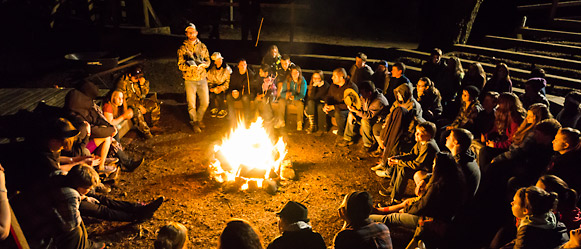
Humanity faces its greatest challenge: sin, which creates a chasm between us and God. Yet, the church stands at the very heart of God’s divine solution to bridge this separation. In 2 Corinthians 5:17-21, we are reminded that in Christ, we are made anew, and through His church, the possibility of reconciliation with God is made real. The church is not just a body; it is where the ministry of reconciliation is both exercised and experienced.
The church plays an integral role in our ultimate salvation. Here, we are nurtured in our faith, guided by the teachings of Christ, and supported as we navigate the path toward eternal life. However, it’s disheartening to acknowledge that we often hesitate to share the remarkable gift of salvation. Now is the time for boldness!
We are God’s plan to bring the gift of life to the world! People need the church, and they need what you and I possess. Be strong and courageous as we face the unknown together as a family in Christ. Acts 4:29 encourages us, “And now, Lord, look upon their threats and grant to your servants to continue to speak your word with all boldness.” In the preceding verses, we see Peter and John standing before the council, threatened and commanded not to speak of the gospel. But instead of cowering, the church prayed for boldness to be the light they were called to be.
As we read in Acts 4:13, “Now when they saw the boldness of Peter and John, and perceived that they were uneducated, common men, they were astonished. And they recognized that they had been with Jesus.” The boldness of Peter and John was evident, and despite their lack of formal education, God was using them in significant ways. This is a powerful reminder for us today; it doesn’t matter if you stumble over words or if you think “sanguine” refers to a type of bird—God can still use you in incredible ways! Let’s pray that, as members of His church, we will be bold and share the marvelous news of salvation, ensuring that the legacy of the early church continues in our future.
The early church was bold, but it was also known for its generosity. The church holds a distinct position as the manifestation of God’s eternal purpose, unlike any other human institution. God calls us to embody generosity in every aspect of our lives. Being part of the church means fostering a culture of generosity, where we care for one another’s needs and create an environment filled with Christ’s love. We become each other’s safety net—not just financially, but spiritually and emotionally as well. We are generous with our time, our love, our resources, and our forgiveness.
Acts 4:34-35 describes a beautiful picture: “There was not a needy person among them, for as many as were owners of lands or houses sold them and brought the proceeds of what was sold and laid it at the apostles’ feet, and it was distributed to each as any had need.” God designed us to be a family that leans on one another, ensuring that any need is met here in our community. You’d be amazed at how powerful generosity can be as a tool for evangelism. There’s a reason God designed us this way—it draws people in.
Lastly, the early church exemplified commitment. We should strive to become a group of believers who are committed in every aspect of church life. Let us be dedicated to fellowship, encouragement, and love. We must commit ourselves to the Gospel, to our elders, and to the work of the church. It begins with each individual—no one can fulfill your role for you!
Acts 4:33 states, “And with great power the apostles were giving their testimony to the resurrection of the Lord Jesus, and great grace was upon them all.” Reflect on this: “This is my church. It is composed of people just like me. It will be friendly if I am. It will do a great work if I work. It will make generous gifts to many causes if I am generous. It will bring others into its fellowship if I bring them. Its seats will be filled if I fill them. It will be a church of loyalty and love, of faith and service. If I who make it what it is, am filled with these, Therefore, with God’s help, I dedicate myself to the task of being all these things I want my church to be.”
What do you envision for the body of believers where you attend? Be the change you wish to see. Commit personally, regardless of what others may say or do. You are part of the body of Christ, and He desires for you to be actively involved in His work. Embrace the boldness, generosity, and commitment that defined the early church, allowing us to fulfill our calling in today’s world.















